How successful are sports movies? (And are they any good?)
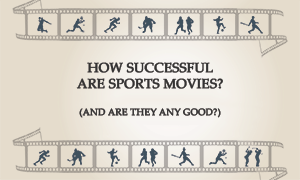
Boxing movie Creed II opens in a few weeks and the early reviews suggest that it will be worth watching. This has spurred me on to investigate a couple of related questions asked by readers about sports movies.
Nada asked about the accuracy of the industry adage that "sports films don’t work" and Jason asked "Am I right to think sports movies are normally pretty bad?"
Let's a take a quick look at sports movies over the past twenty years to see how true each of these assertions is.
How many sports movies are there?
To study this topic, I looked at all movies released in US cinemas over the past two decades (1998-2017, inclusive) and figured out which were classed as "sports movies" by IMDb. Production of such movies has been dropping in recent years, both as a percentage of overall production and in raw numbers.
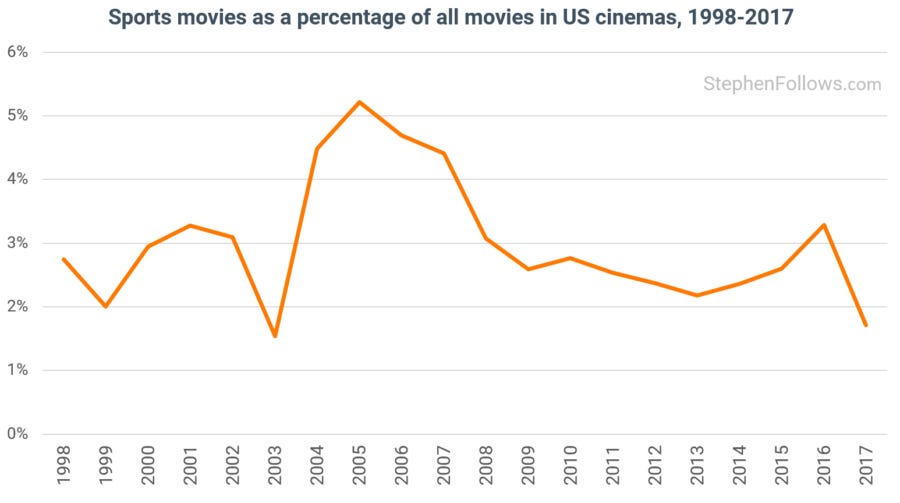
2005 and 2066 were high points in production, featuring the release of movies such as The Longest Yard, Talladega Nights: The Ballad of Ricky Bobby, Nacho Libre, Rocky Balboa, Coach Carter and Cinderella Man.
How are sports movies performing?
As a result, the mid-2000s saw a sharp rise in the domestic box office revenues for sports movies (see more on why in the Epilogue at the end of this article).
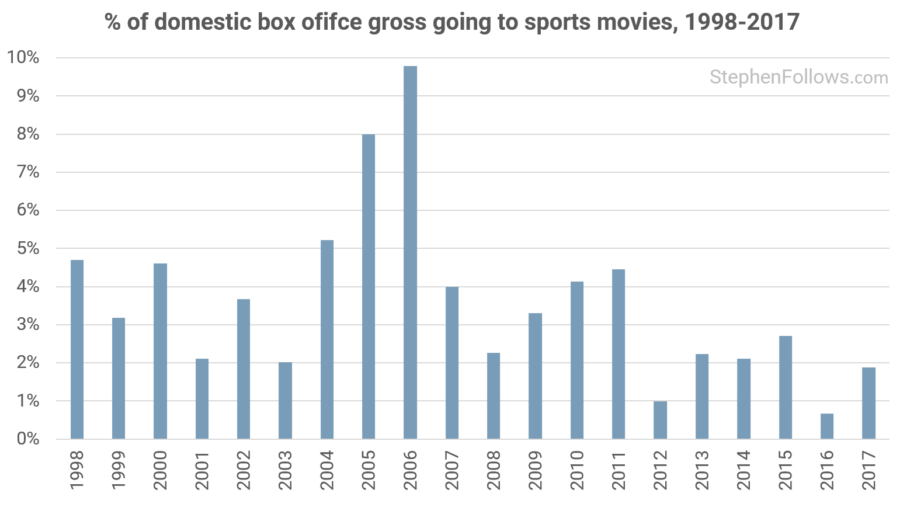
Working out profitability for movies is tricky and when I've covered this in the past it's taken a lot of data and some complicated modelling. For this article, I'm going to look at a rough metric which should help us get a sense of whether the profitability of sports movies is massively different to those of non-sports movies.
I took the domestic theatrical gross and divided it by the production budget (when both figures were publicly available). This means that if a movie grossed $10 million and cost $20m to make, it would come out as 0.5. Conversely, a movie with a budget of $5 million and a gross of $20 million would be 4.0.
As you can see below, sports movies do not look very different to all movies in US cinemas. In fact, overall they performed slightly better than all moves, reaching an average of 2.23 compared with 2.01 for all movies.
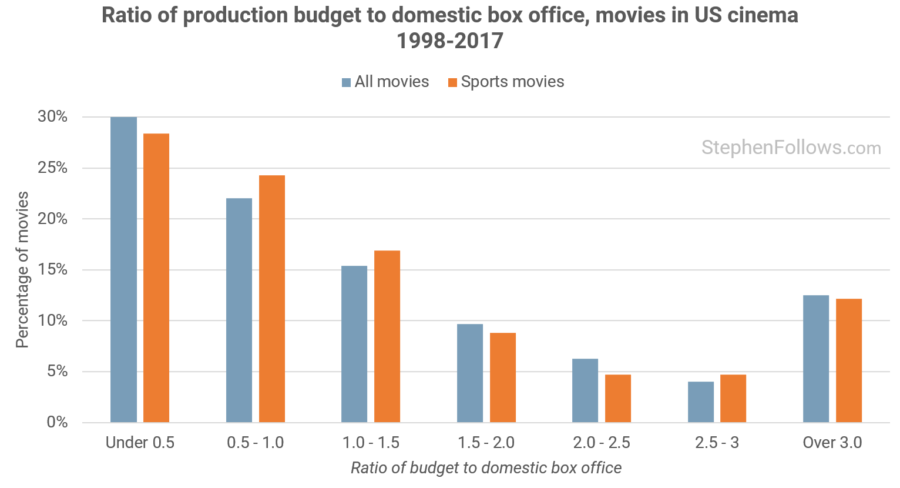
Are sports movies worse than non-sports movies?
Let's move on to the second part of today's question: quality. For this we'll use the Metascore, which is the average score each film received from major film reviewers, out of 100.
The average movie released in US cinemas between 1998 and 2017 received a Metascore of 55.5 whereas the average sports movie over the same period averaged 52.4. Whilst this is lower, I don't think it represents a significant difference between sports movies and their non-sport counterparts.
Looking at the time series below we can see that for most years the two types of movies are fairly similar. The biggest difference over this twenty-year period was in 1998 when the sports movie average was dragged down by the unfairly maligned BASEketball (Metascore of 38) and the correctly maligned The Waterboy (41).
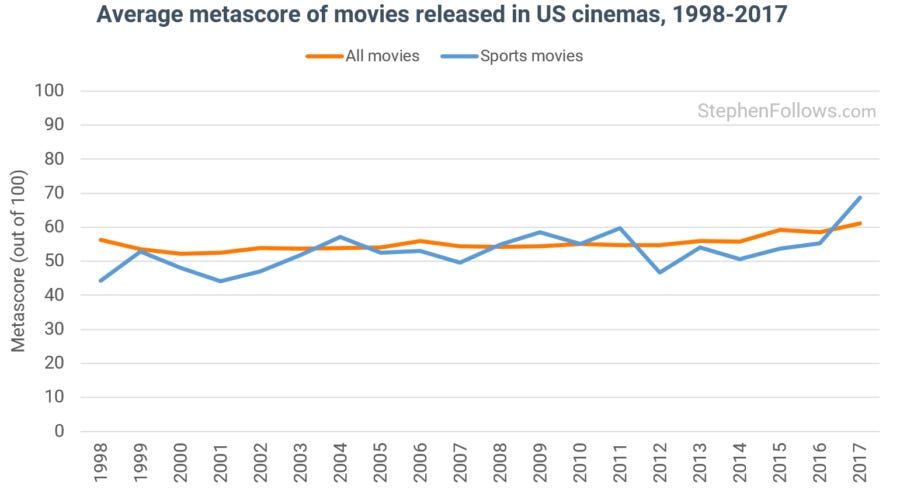
We can get a sense of what the audience thinks by tracking the IMDb user score. All movies over this period averaged 6.30 out of 10 whereas sports movies scored an almost identical 6.34.
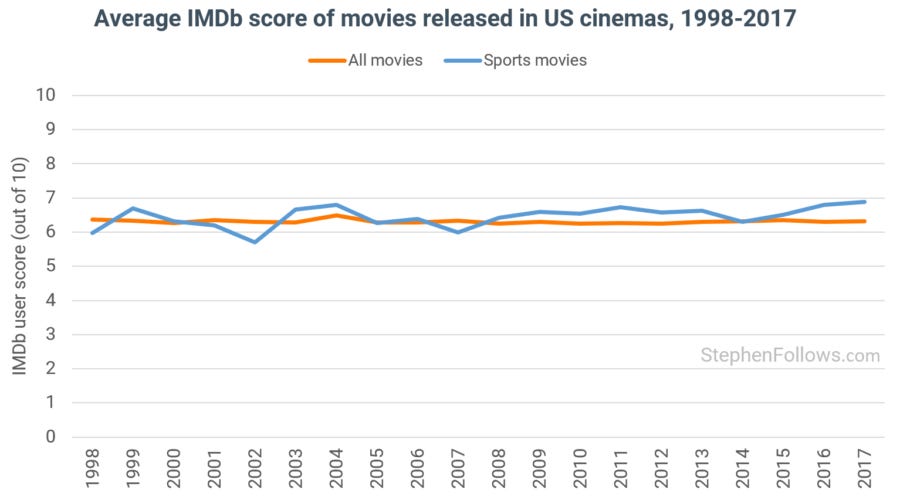
When we overlay the individual Metascores and IMDb scores for all movies, we can see that there is no big fundamental difference between sports movies and movies of other types.
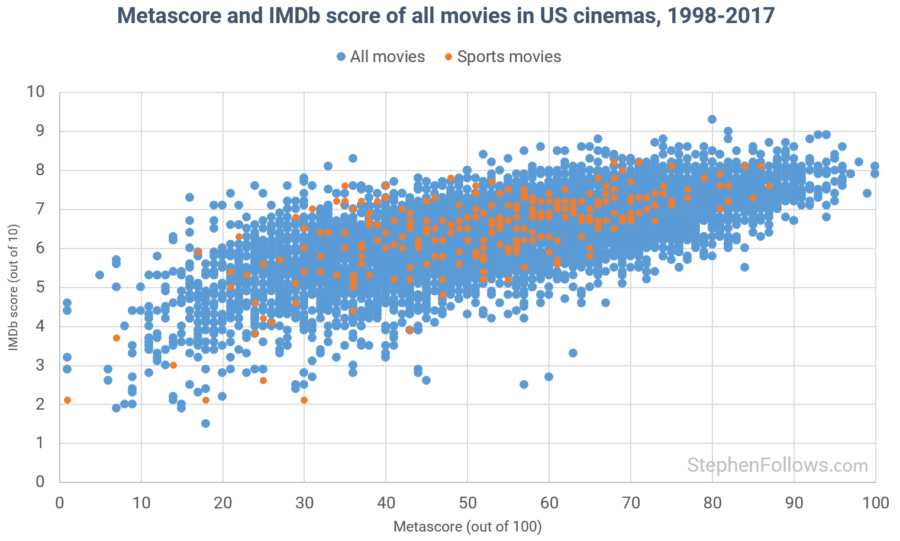
Is the collective noun for sports movies "a crash of sports movies"?
Before we leave this topic, I thought I'd take a look at the IMDb plot keywords for each of the sports movies released over the two decades I studied. The idea was to get a sense of which sports are most played and what happens in sports movies.
Football came up top, although sadly this co-mingles both American football and soccer (which are also represented individually, as movies can have multiple keywords). Baseball comes second, with boxing and basketball coming a close third and fourth.
A very common theme in sports movies is car crashes. A small number of these will be due to movies about racing cars but the majority seem to be plot points involving athletes getting injured or killed. Just over 10% of the sports movies I studied featured a car crash!
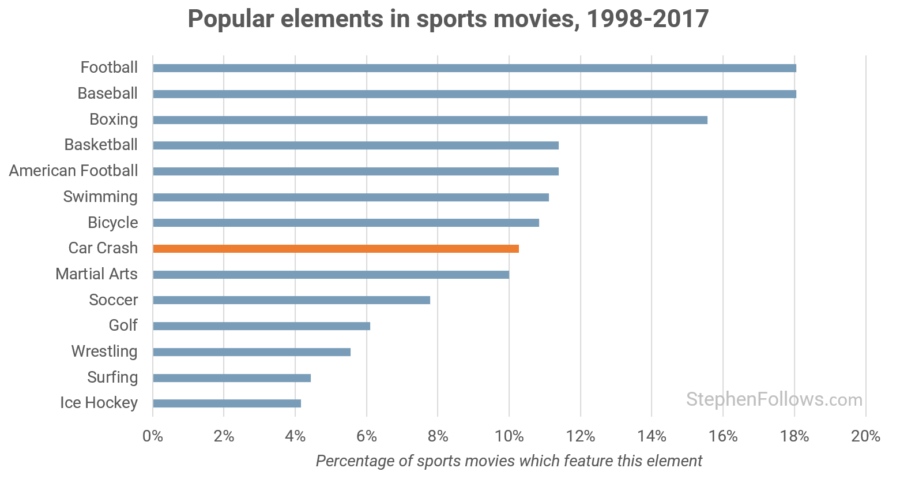
We can also look at the Metascore for sports movies with these keywords, which provides an insight into which movies critics think are good. Boxing comes top (think Rocky Balboa, Million Dollar Baby, Fearless) with Ice Hockey at the other end (think MVP: Most Valuable Primate, The Mighty Ducks, Mystery, Alaska).
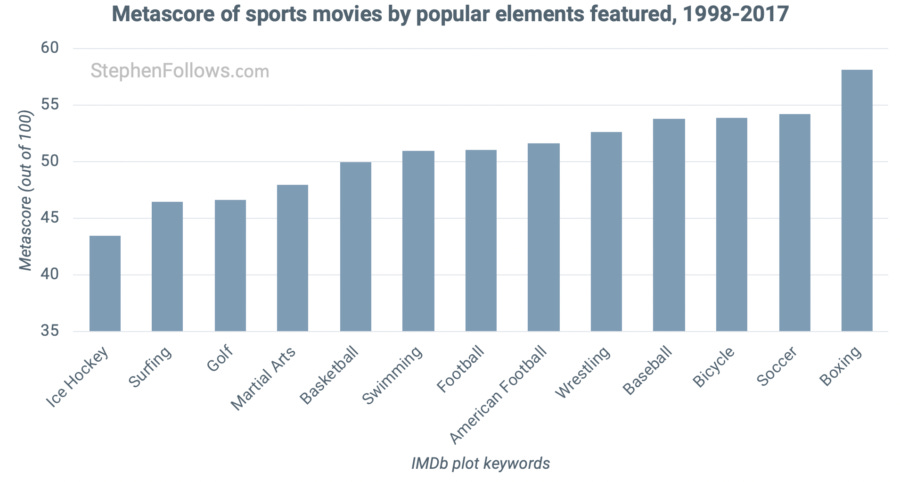
It's worth noting that to do this particular analysis properly I would need to determine the main sport of each film and disentangle the different types of football. A project for another time, methinks.
Notes
The data for today's research came from IMDb, The Numbers and Metacritic.
Epilogue
The idea of a "sports movie" feels clear... until you come to study it.
A case in point is the two biggest sports movies of 2006. The highest grossing "sports movie" of that year was Pixar's Cars. Should this qualify as a sports movie? While it's not what most people picture when they think sports (i.e. it doesn't feature human athletes), it does centre on racing cars and even had its premiere in Lowe's Motor Speedway.
As if to taunt us, the second biggest sports movie of that same year was another racing movie which did star humans - Talladega Nights: The Ballad of Ricky Bobby. So if your instinctive reaction was to exclude Cars from being described as a sports movie then do we accept Talladega Nights?
At which point, we may need to open the Pandora's Box of "What is a true sport?" (i.e. darts, Parkour, etc). It's all one big slippery, subjective slope!


